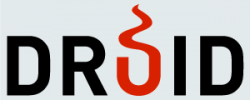The DRUID16 20th Anniversary Conference, Copenhagen Business School, June 13 – 15, 2016
The evolutionary roots of adaptive capacity: How the past quirks of an organization’s environment influence its future latitude
 Allard van Mossel
Allard van Mossel
Utrecht University
Abstract:
Contemporary research often assumes that organizations are capable of balancing the shorter benefits flowing from efficiency against the long-term benefits flowing from adaptive capacity. However, immediate competitive pressures may lead organizations to prioritize efficiency over adaptive capacity. Under these conditions, organizational survival becomes driven by environmental selection rather than adaptation. Yet much remains unclear about whether – and if so, when – the interplay between efficiency-focused adaptation and environmental selection can lead organizations to retain significant adaptive capacity. We engage this issue with an evolutionary version of Kauffman’s NK-model and identify how and when organizations evolve to exhibit adaptive capacity and explore how this varies across patterns of environmental dynamics. Our results show that, somewhat paradoxically, environmental selection can indeed act as an enabler of future adaptation. We further show that environmental dynamism during an industry’s evolution leads to significant heterogeneity in the adaptive capacity of its organizations. Most notably, the longer an organization manages to survive in a dynamic environment (as indicated by the organization’s age), the higher its adaptive capacity is likely to be. This suggests that efficiency and adaptive capacity are not mutually exclusive – or the trade-off that they are sometimes made out to be.
